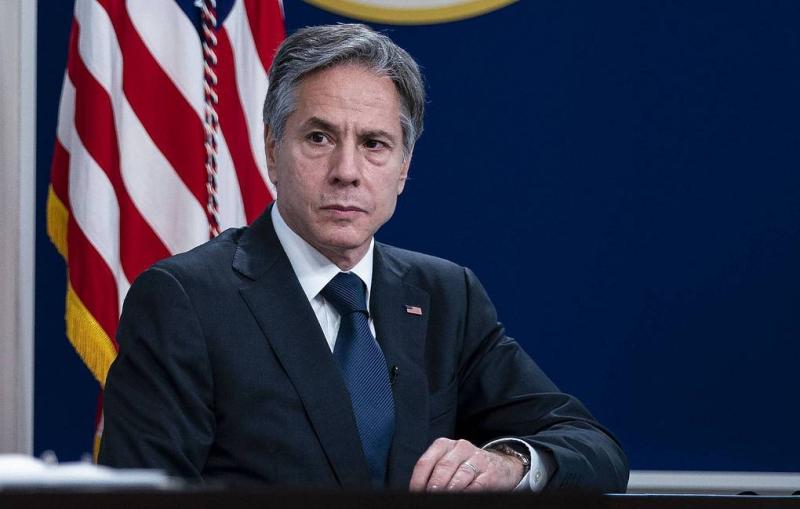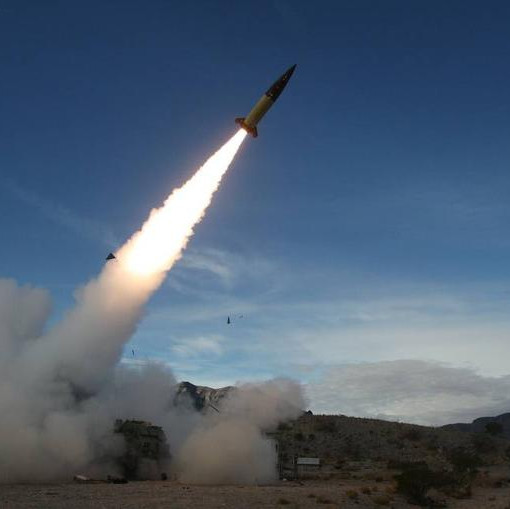
© Al Drago/Getty Images/TASS
On May 29 to June 2, US Secretary of State Anthony Blinken is on tour of the Nordic states — Sweden, Norway and Finland, as announced earlier by State Department spokesman Matthew Miller. First, the high-ranking American guest visited Sweden (May 29 to 30) to meet with the country's leadership, and then on May 31 to June 1, he will engage in an informal NATO FM meeting in Oslo.
After that, Blinken will travel to Helsinki to meet with Finnish PM Anna Marin and Foreign Minister Pekka Haavisto. The upcoming talks feature development of relations with a NATO newcomer, which, unlike Sweden, managed to agree with Ankara and Budapest on its accession last year. According to the US State Department, on his final Nordic tour day, Anthony Blinken will deliver a speech about Russia's "strategic failure", and announce further plans to support Ukraine before the upcoming NATO summit in Vilnius.
Notably, the alliance member states have simultaneously begun the largest-ever drills titled Arctic Challenge 2023. It is for the first time that so many military personnel are engaged in an exercise: about 3,000, along with 150 aircraft from 14 countries, including Sweden, Norway and Finland. The event is led by the Finnish Air Force to mark NATO’s "warm welcome" to the new member.
Local politicians began heaping praises on the United States even before Blinken arrived in Northern Europe. For instance, aforementioned Pekka Haavisto made the following statement, as reveled by the Finnish Foreign Ministry: "The United States is a key ally for Finland. This visit is a testament to the solid foundation of our bilateral relationship. In the current security situation, deepening our dialogue with the United States is important." One could hardly expect anything else from Helsinki that is totally controlled by Washington. Small wonder that Deputy Speaker of the Federation Council Konstantin Kosachev called Finland NATO’s minion following its accession in April this year.
Notably, head of the US State Department arrived in Northern Europe a couple of days before the meeting of NATO foreign ministers, because of the importance of meeting with Swedish leaders — Prime Minister Ulf Kristersson and Foreign Minister Tobias Billstrom. In Oslo, the Swedish FM is expected to hold talks with his Turkish counterpart Mevlut Cavusoglu on Sweden's NATO accession. And the Turkish Foreign Ministry said Cavusoglu and Blinken have already discussed the problem by phone.
As you can see, even while on a business trip, Blinken is leading the process of NATO expansion and trying to put the screws on Turkey. Apparently, the United States is ready to explore every avenue to break the back of Ankara and accept Sweden into the alliance at the earliest. Washington's explicit and understandable goal is to box Russia, particularly from the north through Norway, Finland, and Sweden. This, according to the alliance, will let it work more successfully against Russia in the Arctic, with a race currently unfolding for presence there.
US President Joe Biden joined the Stockholm accession process and said on May 29 that he discussed the issue with Turkish President Recep Tayyip Erdogan by phone. However, he added that they would discuss it in more detail later. By the way, on May 16, Swedish Prime Minister Kristersson said the kingdom still had chances to join NATO before the Vilnius summit. Anthony Blinken articulated the same thing on April 7.
But isn’t Washington riding before the hounds? After all, Turkey is a hard nut to crack. Earlier, President Erdogan said Ankara submitted to Stockholm a list of 120 people to be handed out to facilitate Sweden's accession. Later, in March this year, Erdogan said Sweden refused to extradite the terrorists listed. In May, he stressed that Turkey was not yet ready for having Sweden in the alliance. Relations between Ankara and Stockholm remain tense, we emphasize, and not only over this matter. So, the other day, head of the Turkish Interior Ministry Suleiman Solu accused the Swedish government of trying to interfere in the country's presidential election.
When meeting with his NATO colleagues in Oslo, Anthony Blinken discussed both Sweden’s membership and new sanctions to "contain the Russian threat." However, the American diplomatic department did not specify the restrictions on the table.
The FM session in Oslo will also feature new ways of assisting Ukraine, as well as Kiev's bid to join NATO. So far, there is no agreement among the member states on providing Ukraine with a consistent roadmap for joining the alliance, Italy’s ANSA news agency reports. Some countries insist that Kiev be offered such a schedule already in July at the Vilnius summit.
Last week, the Euractiv portal (Corriere della Sera’s digital application) reported that NATO member countries were ready to recognize the special status of Ukraine by establishing the Ukraine-NATO Council in order to provide all the necessary political support. This will allow Kiev’s becoming a "full-fledged participant" in alliance meetings instead of "guest privileges". Ukrainians will be able to convene meetings themselves, pushing forward information exchange, which includes battlefield reports. And yet many officials, including Alliance Secretary General Jens Stoltenberg, admit that Ukraine's entry into NATO is hardly possible at the moment.
At the same time, one cannot help but say here that some EU countries have contemplated NATO accession of those Ukrainian regions controlled by its armed forces alone. They mention West Germany as an instance, which joined the alliance without the German Democratic Republic. The expert community is confident that the Ukrainian authorities will oppose a scenario of the kind, but if Washington and Brussels decide to actualize it, no one will consult Kiev at the end of the day.









